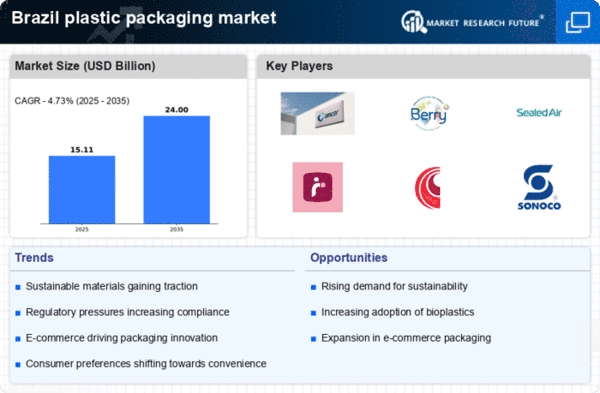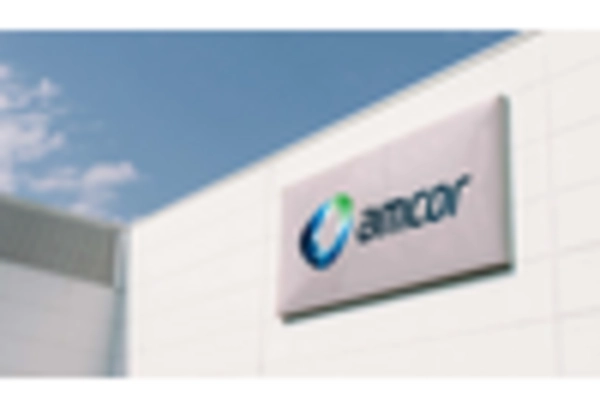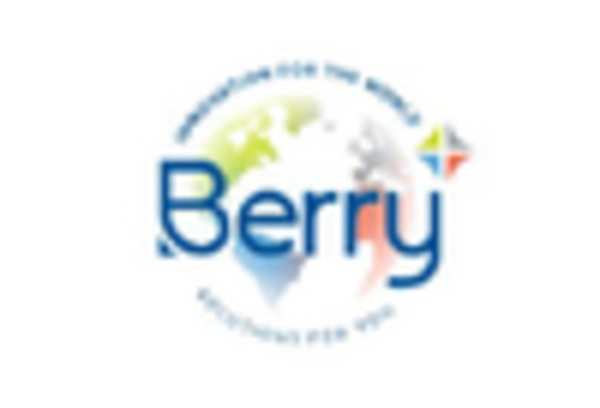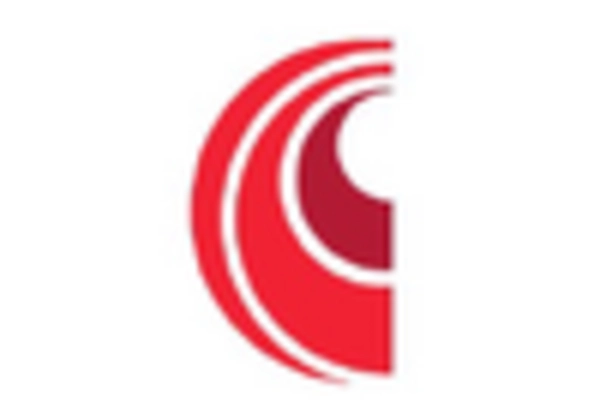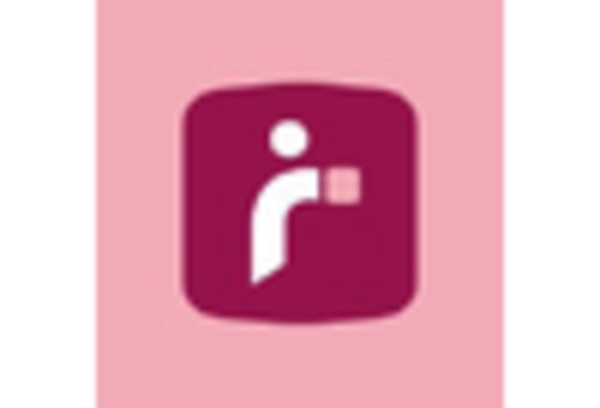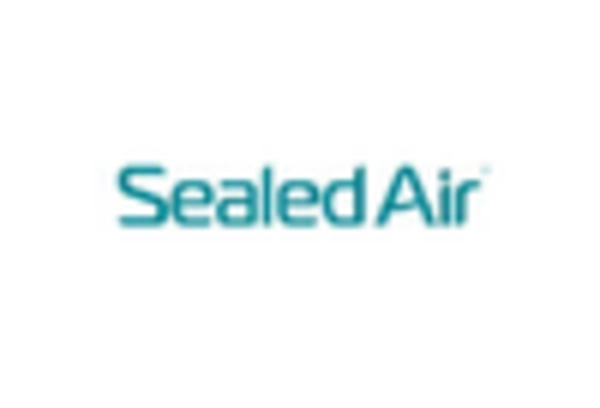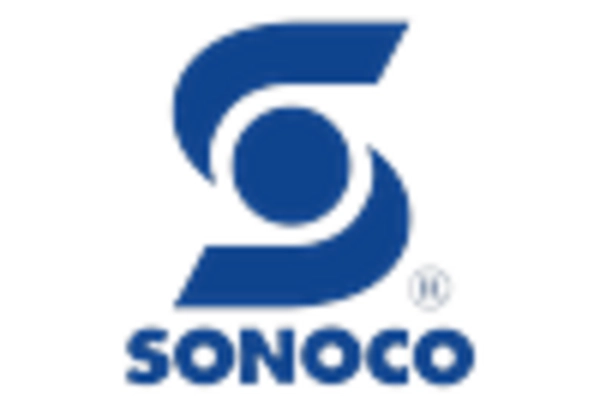Growth of E-commerce and Online Retail
The rise of e-commerce in Brazil is significantly impacting the plastic packaging market. As online shopping continues to gain popularity, there is an increasing need for packaging solutions that can withstand the rigors of shipping and handling. The plastic packaging market is adapting to this trend by developing durable and protective packaging materials that ensure product integrity during transit. Recent data suggests that e-commerce sales in Brazil are projected to grow by over 20% annually, which will likely drive demand for innovative packaging solutions tailored for online retail. This shift not only presents opportunities for growth but also challenges manufacturers to create packaging that is both functional and environmentally friendly.
Rising Consumer Demand for Convenience
The plastic packaging market in Brazil is experiencing a notable surge in consumer demand for convenience-oriented products. As lifestyles become increasingly fast-paced, consumers are gravitating towards packaging solutions that offer ease of use and portability. This trend is particularly evident in sectors such as food and beverages, where ready-to-eat meals and single-serve packages are gaining traction. According to recent data, the convenience food segment is projected to grow at a CAGR of approximately 8% over the next five years, driving the need for innovative plastic packaging solutions. The plastic packaging market is thus adapting to these changing consumer preferences by developing lightweight, resealable, and easy-to-carry packaging options that enhance user experience.
Technological Innovations in Packaging
Technological advancements are playing a pivotal role in shaping the plastic packaging market in Brazil. Innovations such as smart packaging, which incorporates sensors and indicators, are becoming increasingly prevalent. These technologies not only enhance product safety and quality but also provide valuable information to consumers regarding freshness and storage conditions. The plastic packaging market is likely to benefit from these innovations, as they can lead to reduced food waste and improved supply chain efficiency. Furthermore, the integration of automation and robotics in manufacturing processes is expected to streamline production, reduce costs, and enhance the overall quality of packaging solutions.
Expansion of the Food and Beverage Sector
The food and beverage sector in Brazil is a critical driver for the plastic packaging market. With the country's diverse culinary landscape and increasing urbanization, there is a rising demand for packaged food products. Recent statistics indicate that the food and beverage industry is expected to reach a market value of over $200 billion by 2026, which will likely propel the plastic packaging market forward. This growth is attributed to factors such as changing dietary habits, increased disposable income, and a growing middle class. Consequently, manufacturers are focusing on developing innovative packaging solutions that cater to the specific needs of this sector, including barrier properties and extended shelf life.
Regulatory Support for Recycling Initiatives
In Brazil, the plastic packaging market is significantly influenced by regulatory frameworks aimed at promoting recycling and sustainability. The government has implemented various policies that encourage manufacturers to adopt eco-friendly practices, including the use of recyclable materials in packaging. For instance, the National Solid Waste Policy mandates that companies engage in reverse logistics, which has led to an increase in the recycling rate of plastic packaging. As a result, the plastic packaging market is witnessing a shift towards more sustainable materials, with an estimated 30% of packaging now being made from recycled content. This regulatory support not only enhances the market's sustainability profile but also aligns with the growing consumer preference for environmentally responsible products.


